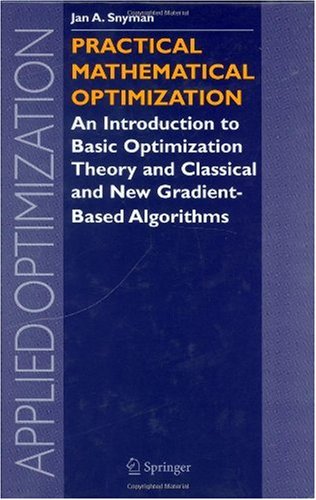

Most ebook files are in PDF format, so you can easily read them using various software such as Foxit Reader or directly on the Google Chrome browser.
Some ebook files are released by publishers in other formats such as .awz, .mobi, .epub, .fb2, etc. You may need to install specific software to read these formats on mobile/PC, such as Calibre.
Please read the tutorial at this link: https://ebookbell.com/faq
We offer FREE conversion to the popular formats you request; however, this may take some time. Therefore, right after payment, please email us, and we will try to provide the service as quickly as possible.
For some exceptional file formats or broken links (if any), please refrain from opening any disputes. Instead, email us first, and we will try to assist within a maximum of 6 hours.
EbookBell Team

4.7
106 reviewsThis book presents basic optimization principles and gradient-based algorithms to a general audience in a brief and easy-to-read form, without neglecting rigor. The work should enable professionals to apply optimization theory and algorithms to their own particular practical fields of interest, be it engineering, physics, chemistry, or business economics. Most importantly, for the first time in a relatively brief and introductory work, due attention is paid to the difficulties – such as noise, discontinuities, expense of function evaluations, and the existence of multiple minima – that often unnecessarily inhibit the use of gradient-based methods. In a separate chapter on new gradient-based methods developed by the author and his coworkers, it is shown how these difficulties may be overcome without losing the desirable features of classical gradient-based methods.